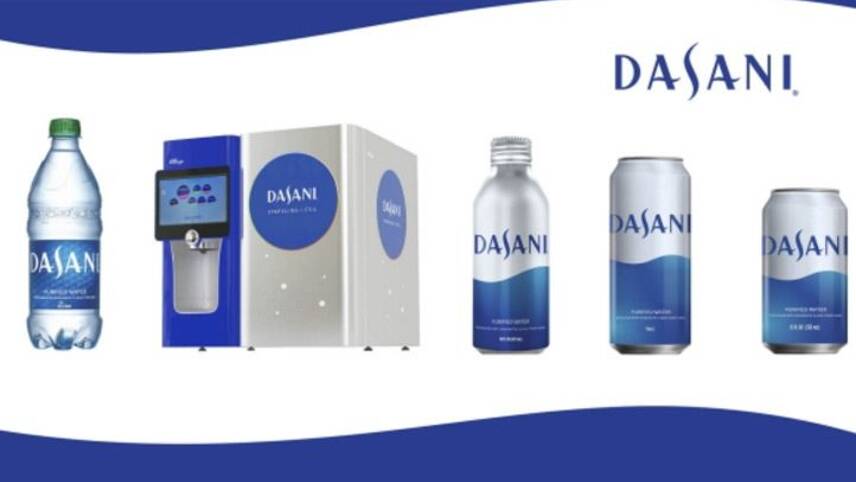Register for free and continue reading
Join our growing army of changemakers and get unlimited access to our premium content

The new packaging formats include recyclable aluminium cans
The updates, which Dasani has described as the “largest sustainability initiatives in the history of the brand”, include a pledge to switch all 20-oz bottles sold within the US for those made with a mix of 50% plant-based bioplastic and recycled PET plastic. This shift is expected to be completed by mid-2020.
Elsewhere, Dasani will also launch its first water in aluminium cans in some North-eastern states this autumn, and its first water in larger-format aluminium bottles in 2020. This is because aluminium tends to experience higher recycling rates than plastics and can be recycled more times without its structure becoming compromised.
But, given that recent analysis has suggested that it is single-use packaging in any form that is the real sustainability challenge, perhaps a more innovative solution from Dasani is its packaging-free option, the PureFill dispenser. The brand’s packaging update will see 100 of these water dispensers installed across the US, beginning next month, at locations such as shopping centres, transport hubs and leisure complexes.
“While there is no single solution to the problem of plastic waste, the additional packaged and package-less options we are rolling out today mark an important next step in our effort to provide even more sustainable solutions at scale,” Dasani’s brand director Lauren King said.
World Without Waste
The launch of Dasani’s new packaging formats forms part of The Coca-Cola Company’s overarching vision of a “World Without Waste”, in which it collects and recycles one bottle or can for every one it sells by 2030.
A further key facet of the “World Without Waste” strategy is the inclusion of 50% recycled content in all plastics packaging by 2030, up from a 7% baseline in 2017. Indeed, several of Coca-Cola’s largest regional bottlers have set more ambitious targets around recycled content, with Coca-Cola UK and Coca-Cola European Partners (CCEP), targeting 50% by 2020 and 2025 respectively.
While the green economy has, broadly, reacted well to The Coca-Cola Company’s efforts to reduce its virgin plastics footprint, anger was recently directed at the firm by green campaigners after it disclosed its total plastic footprint for the first time, revealing that it used three million tonnes in its global operations 2018. This figure accounts for both virgin and recycled plastics.
The information was disclosed through the Ellen MacArthur Foundation’s New Plastics Economy Global Commitment spring 2019 report, which revealed that The Coca-Cola Company was the largest user of plastic during 2018 out of the companies surveyed, using almost double that of the next firm on the list, Nestle.
Green campaign groups such as Greenpeace were quick to argue that the company should be ashamed of the figure, with some calculating that its annual plastic use is equivalent to around 108 billion bottles per year, or one-fifth of the world’s total annual single-use plastic bottle output.
The Ellen MacArthur Foundation’s New Plastics Economy lead Sander Defruyt, however, has argued that disclosure is the first step towards driving positive change.
“We applaud the companies that are publishing this data and encourage all other companies that make and use plastics to follow their lead,” Defruyt said. “This is an important step forward to create transparency.”
Similarly, Coca-Cola’s European sustainability director Therese Noorlander recently told edie that disclosure on plastic use is essential for any company wishing to regain consumer trust as the war on plastics continues to gather pace and fake news continues to spread.
Sarah George


Please login or Register to leave a comment.